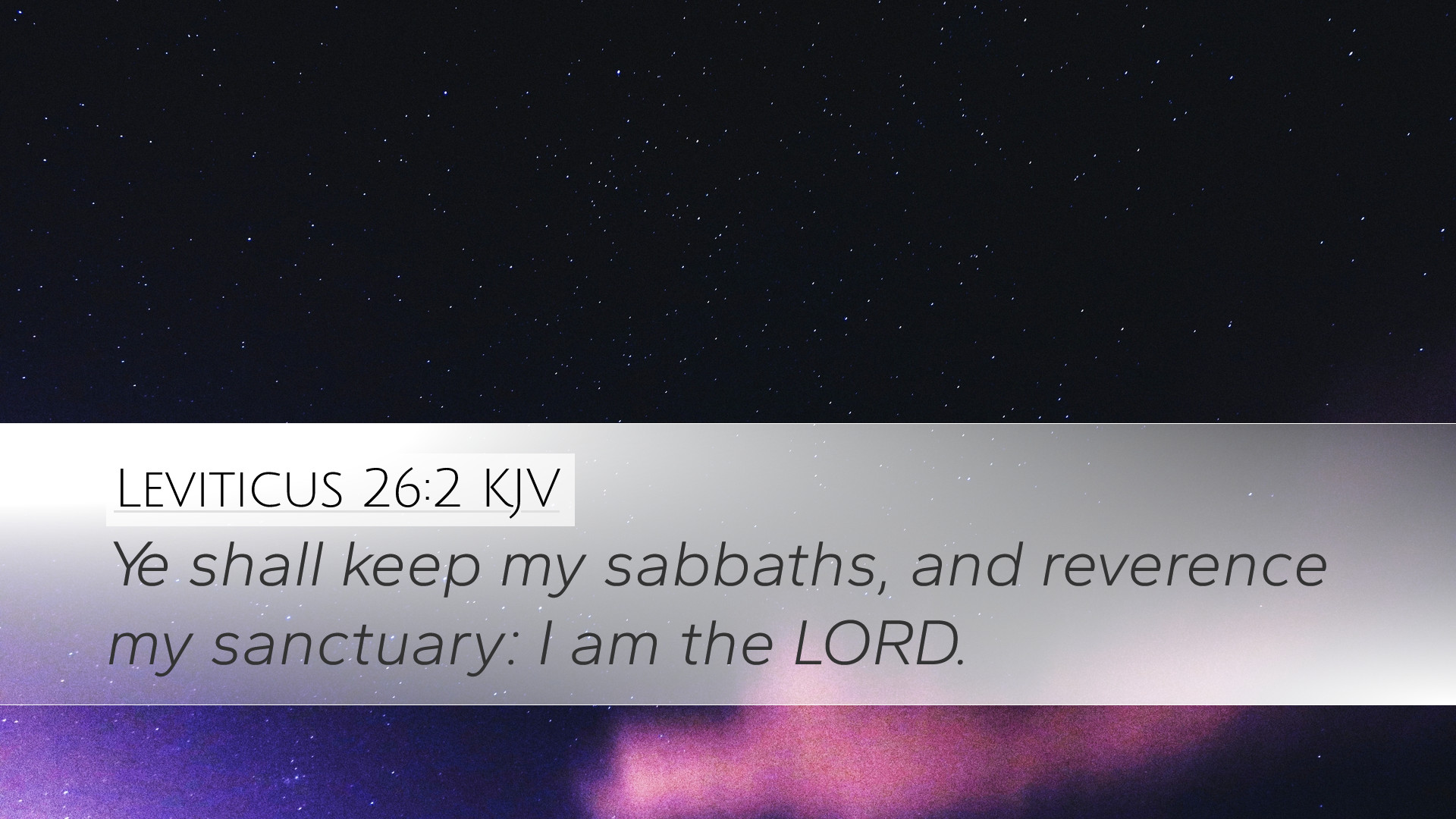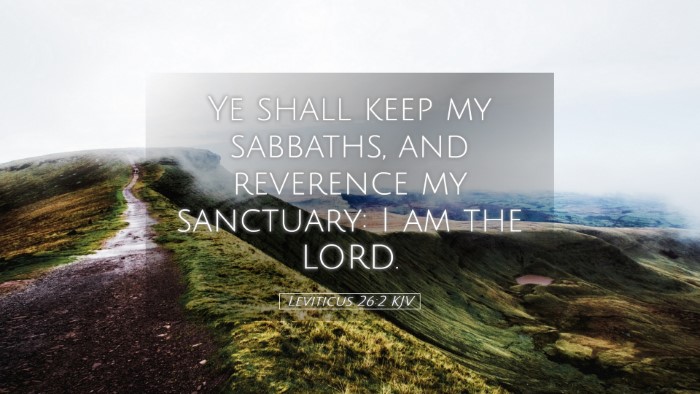Commentary on Leviticus 26:2
Verse Text: "You shall keep my Sabbaths and reverence my sanctuary: I am the Lord."
Introduction
Leviticus 26:2 represents a pivotal verse in the Holiness Code, emphasizing the significance of the Sabbath and the sanctity of the dwelling place of God. This verse serves as a prelude to the blessings and curses that follow, underscoring the conditionality of God's covenant with Israel.
Contextual Analysis
The Book of Leviticus provides instructions for the Israelites on how to live in accordance with God's covenant. This particular passage falls within a section that outlines the mutual responsibilities of God and His people. The stipulations listed here highlight the importance of maintaining a relationship with the Lord by observing sacred time and spaces.
Matthew Henry's Insights
According to Matthew Henry, this verse encapsulates the essence of true worship. He notes that keeping the Sabbaths reflects a commitment to God’s ordinance and serves as a perpetual reminder of His creation and covenant. Henry emphasizes that the observance of the Sabbath is not merely a ritual, but a heartfelt expression of reverence and a means of spiritual renewal. He writes:
"The keeping of the Sabbaths, therefore, implies a regular setting apart of time for communion with God, acknowledging His authority and care."
Albert Barnes' Perspective
Albert Barnes asserts that the command to "reverence my sanctuary" places significance on the physical space designated for worship. He articulates that the sanctuary represents God's presence among His people and serves as a focal point for communal worship and individual holiness. Barnes reflects on this idea:
"The sanctity of the tabernacle is not merely a fiscal command but a reflection of God's covenant presence—it's a call for the people to respond to His holiness."
Barnes further elaborates that reverence is a vital aspect of approaching the divine, reminding believers that their attitude toward sacred spaces significantly impacts their relationship with God.
Adam Clarke's Commentary
Adam Clarke provides a broader theological exploration of this verse. He notes that the terms 'Sabbaths' and 'sanctuary' have a deep interconnection—observing the Sabbath contributes to an understanding of God's holiness and order. Clarke observes:
"These require both observance and veneration; they are means by which God conveys His blessings."
He emphasizes the importance of community in worship and the shared responsibility of the congregation in observing God's laws and honoring His presence. This collective reverence fosters unity within the faith community.
Theological Implications
- The Significance of the Sabbath: The Sabbath is a divine institution designed for rest and spiritual reflection. Keeping the Sabbath signifies acknowledging God's sovereignty over time and creation.
- Reverence for God's Presence: The sanctuary is a sacred space that demands respect. It represents a dwelling place for God, emphasizing His desire to dwell among His people.
- Covenantal Relationship: This verse reinforces the conditional nature of God's promises. The blessings that follow are predicated on Israel's faithfulness in observing these commands, illustrating the reciprocal nature of the covenant.
Practical Applications
For pastors, theologians, and students, this verse offers several practical applications:
- Encouragement of Sabbath Observance: Pastors can teach the significance of keeping the Sabbath as a way of revitalizing faith and enhancing spiritual well-being.
- Promoting Reverence in Worship: Emphasizing the importance of creating a worship environment that fosters reverence and acknowledges God's presence can transform congregational experiences.
- Understanding Blessings and Responsibilities: This verse serves as a reminder that as believers, blessings come through obedience, prompting discussions on the nature of faithfulness to God’s commands.
Conclusion
Leviticus 26:2 stands as a foundational scripture that embodies key themes of covenant, worship, and the call to holiness. Through the insights of Matthew Henry, Albert Barnes, and Adam Clarke, we are reminded of the profound implications this verse holds for individual and communal faith practices. By honoring the Sabbath and revering God's sanctuary, believers continue to affirm their relationship with the Lord, thus maintaining the integrity of the covenant that defines their faith.


